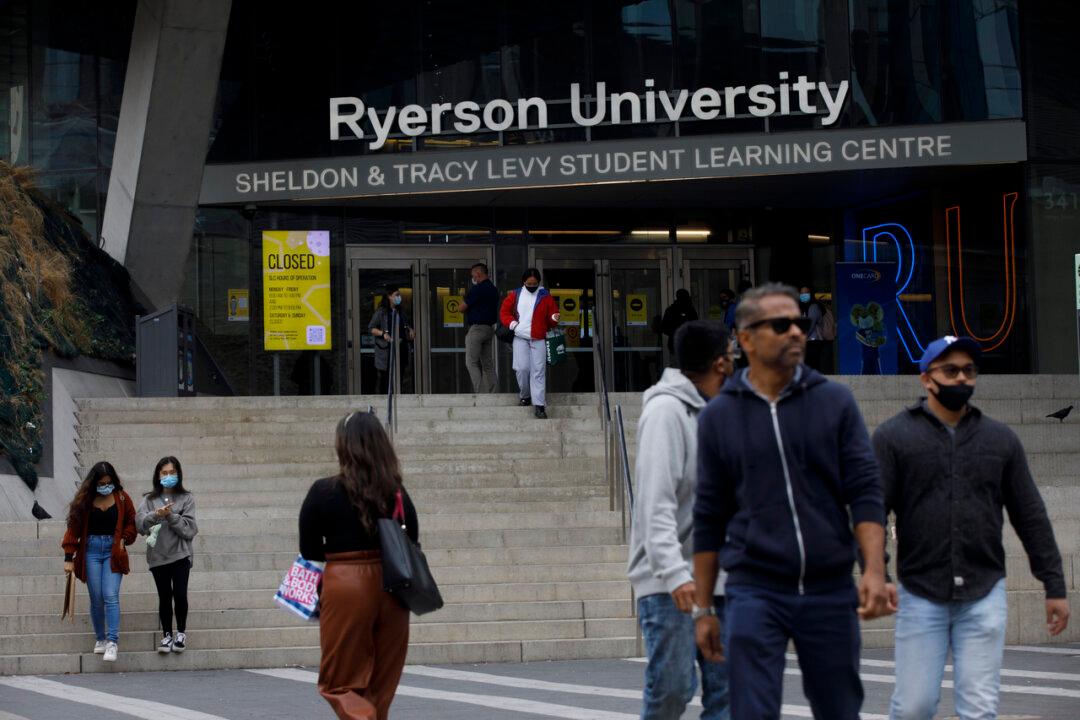Ontario’s Ryerson University has been renamed Toronto Metropolitan University after its board of governors approved a proposal for a name change on April 26.
The renaming process began in August 2021, after Ryerson’s board of governors approved recommendations proposed by a special task force created to review the history and legacy of the university’s namesake, Egerton Ryerson, who was criticized for his contribution to the establishment of Canada’s controversial residential school system.





